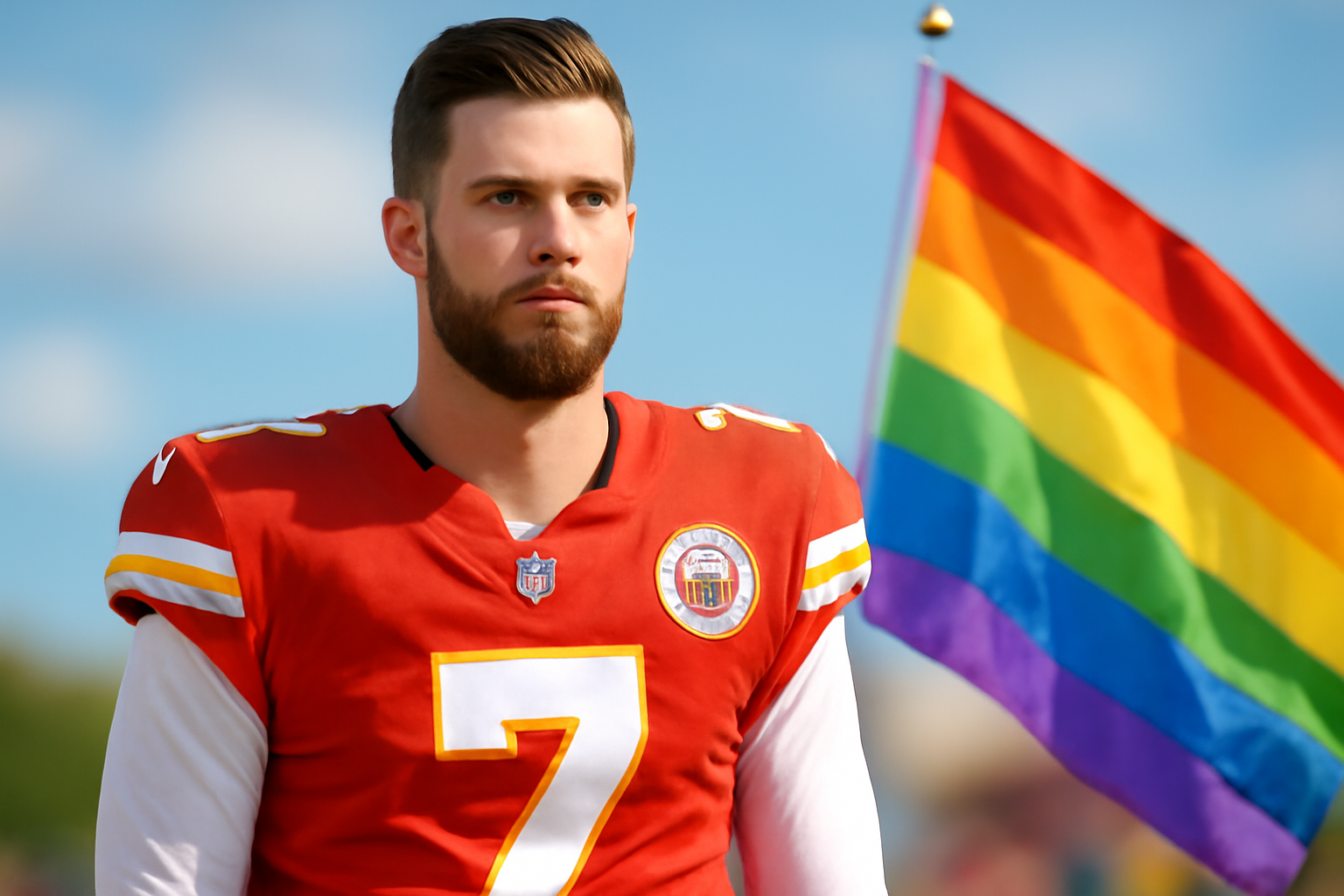
In recent years, professional sports have become a battleground for social issues, with the NFL being no exception. When a public figure, like a professional athlete, makes controversial statements, their team often rallies around them, sometimes sparking debate and discussion.
The situation with Kansas City Chiefs' kicker Harrison Butker is a case in point. Last year, Butker delivered a commencement speech at Benedictine College, which included comments many interpreted as anti-gay, anti-trans, and anti-woman. This speech drew criticism from various quarters, including the nuns at Benedictine College, but also significant support from those within and outside the Chiefs organization.
It's essential to understand that the defense of Butker by his teammates and the organization doesn't necessarily reflect their personal beliefs towards any group. If an NFL player were to come out as gay, it's likely they would receive support from their team, similar to what Kevin Maxen, a coach with the Jacksonville Jaguars, experienced when he came out.
Support for Traditional Roles and Christian Values
Butker's speech resonated with supporters of traditional gender roles and those advocating for a larger Christian influence in the United States. For them, his words were a reflection of their truth. Some of the most fervent defenders were associated with the Chiefs, highlighting the complexities of sports culture and personal belief.
Outsports columnist Jim Buzinski defended Butker's right to speak freely, emphasizing that no legal consequences should arise from his words. This stance highlights the balance between supporting free speech and recognizing the impact of words on marginalized communities.
Chiefs' Stance on Political and Social Issues
The Chiefs' chairman, Clark Hunt, has addressed such controversies by encouraging players to use their platforms to make a difference, regardless of where they stand politically. Hunt's approach reflects the broader culture in the NFL, where winning games and maintaining a positive public image are paramount.
Hunt has expressed that as long as a player's behavior doesn't interfere with team success or business interests, personal beliefs are secondary. This pragmatic approach seems to be the prevailing sentiment in professional sports, where performance often outweighs controversy.
Notably, the Chiefs and head coach Andy Reid have shown support for openly gay figures in sports, like coach Katie Sowers, reflecting a shift towards broader acceptance of LGBTQ individuals in athletics.
Impact on LGBTQ Fans and Athletes
While words like Butker's can be damaging, the support he received demonstrates the complexity of individual and organizational beliefs in sports. For many LGBTQ fans and athletes, this support was a painful reminder of the challenges they face in the sports world.
Despite the progress in acceptance, instances like Butker's speech reveal the lingering anti-gay sentiment that can exist within teams and organizations, highlighting the need for continued advocacy and dialogue.
The Chiefs and the NFL: Navigating Controversies
As the Chiefs continue to perform at a high level, with Butker as one of the league's top kickers, the question remains: Would the same support be extended to a player who comes out as gay?
The Chiefs' journey in the playoffs, and their handling of such controversies, will be watched closely by fans and analysts alike, as they navigate the intersections of sports, personal beliefs, and corporate interests.
The hope is that any player, regardless of sexual orientation, would find the same level of support and freedom to express themselves as Butker did. As sports evolve, the stories of LGBTQ athletes and their allies will continue to shape the future of inclusivity in athletics.
Related Posts
Ryan Russell: Living Authentically as a Bisexual NFL Player
Ryan Russell: embracing authenticity as a bisexual NFL player September 11, 2018, stands out as a deeply personal day in Ryan Russell's life. Not because he achieved something on a football field, but because he lost his dear friend and college roommate, Joe Gilliam, who succumbed after a brave battle with cancer. Throughout Joe's fight, Ryan was there, supporting him every step, even dedicating [...]
Jacob Elordi Shines in a Queer Love Story "On Swift Horses"
Jacob Elordi's latest film, "On Swift Horses," might leave you guessing at first, but at heart, it's a deeply moving queer love story. It's an adaptation from Shannon Pufahl's novel, brought vividly alive by director Daniel Minahan and writer Bryce Kass, weaving together themes that explore love, identity, and self-discovery on many levels. Love unfolds in 1950s America Step back in time with "O [...]
Creating New Models for LGBTQ+ Parenting: Embracing Community and Visibility
Empowering parenthood: envisioning a truly inclusive future "I'm all in when it comes down helping people realize their dreams about becoming parents," says Marea Goodman. She's not just a midwife; she's an author and founder who built Pregnant Together, an inclusive community with a heart. Goodman passionately believes that everyone, no matter who they are, deserves a shot at parenting. With tw [...]